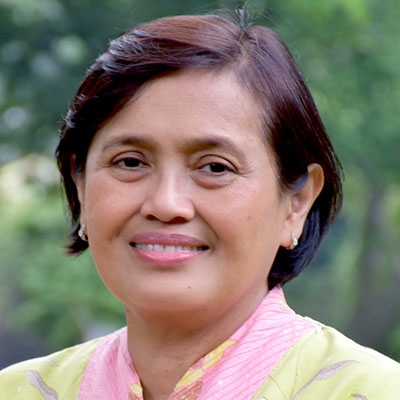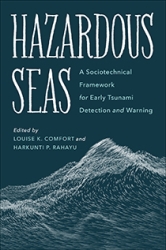
Harkunti P. Rahayu
Dr. Harkunti Pertiwi Rahayuhas been a faculty member of the Urban and Regional Planning Department,School of Architecture, Planning and Policy and Development,at the Institute Technology of Bandung for almost thirty years. She earned her PhD from Kochi University of Technology, Japan, in 2012. She has served as President of Indonesian Disaster Expert Association since 2017;Chair of Working Group 1 UNESCO IOC/Intergovernmental Coordination Group on Indian Ocean Tsunami Warning and Mitigation System since 2012; and a member of ICG TOWS WG (Tsunamis and Other Hazards related to Sea Level Warning and Mitigation System) since 2015. She also currently serves as Chair of Task Team on Tsunami Disaster Management and Preparedness of ICG TOWS WG (2022–2024) and is a member of Scientific Committee for UN Ocean Decade Tsunami Program (SC-ODTP) (2022–2024). She was a member of the National Research Council from 2019 to 2020,and was a recipient of the Newton Prize 2019 Award for her work on developing coastal cities and community resilience. Her work in disaster planning over the past 20 years has helped to improve the capacity of community and local governments at the county and region levels; and she has contributed to guidelines and policy recommendations at national and international levels.
In the past five years, Dr. Rahayu has received international research grants from NAS USAID PEER Cycles 3 and Cycles 6(2015–2022), Newton Fund(2016–2023), and British National Environment Research Council (2019–2021) for improving coastal city and community resilience toward tsunami and multi-hazard, making DRR policy recommendations, and converging CCA and DRR strategies into coastal metropolitan/agglomeration planning using sociotechnical approaches for detecting, mitigating, and building resilience to hazards. She has been an active member of the Hazard SEES research from 2013 to 2019,and subsequently deploying and testing hybrid tsunami detecting system from 2018 to 2021.

